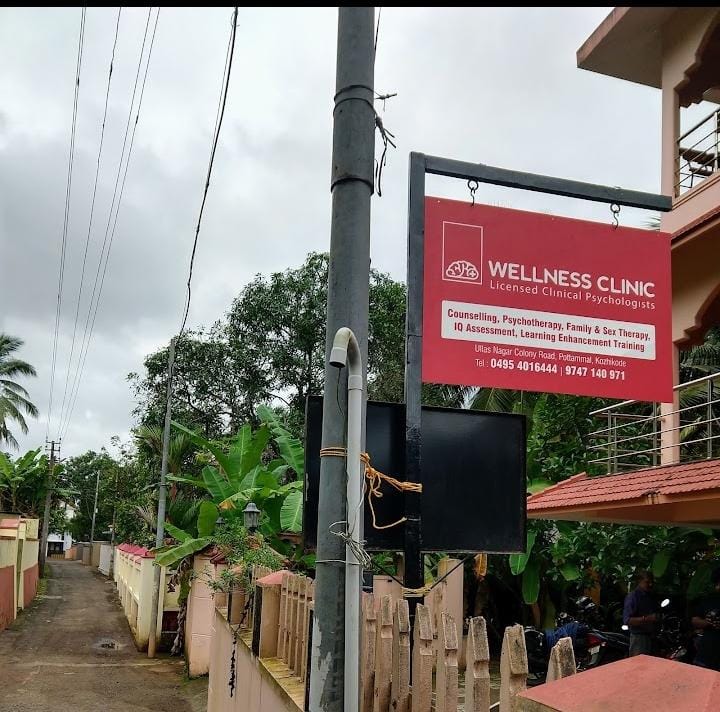Wellness Clinic
Pottammal - Kozhikode
Products & Services:
Wellness Clinic, Pottammal, Kozhikode, Reviews, Contact number, Phone number, Address, Map, Counseli More..
Since : 2015
Pottammal - Kozhikode
Products & Services:
Wellness Clinic, Pottammal, Kozhikode, Reviews, Contact number, Phone number, Address, Map, Counseli More..
Since : 2015
Learning disability assessment is a comprehensive evaluation process used to identify specific learning disabilities in children and adults. This assessment helps in understanding the nature and extent of learning challenges, providing a clear diagnosis that can guide effective interventions and support. In Kozhikode, numerous facilities offer specialized services for learning disability assessment, catering to the needs of individuals seeking academic and personal success.
Aster MIMS Hospital
Baby Memorial Hospital
IQRAA International Hospital & Research Centre
PVS Hospital
MIMS Charitable Hospital
Malabar Hospital
VPS Lakeshore Medical Centre
National Institute of Speech & Hearing (NISH)
Mindful Health Clinic
Kerala Institute for Research, Training, and Development Studies of Scheduled Castes and Scheduled Tribes (KIRTADS)
An individual's capacity to acquire, process, and retain information can be substantially influenced by learning disabilities. These disabilities can have an impact on a variety of areas, such as reading, writing, arithmetic, and comprehension. Fortunately, home to skilled learning disability physicians who specialize in the diagnosis and treatment of these conditions. With their guidance and expertise, individuals with learning disabilities can receive the necessary support to surmount obstacles and achieve success in both their academic and personal lives.
Neurodevelopmental disorders that impair the brain's capacity to effectively comprehend information are known as learning disabilities. They are not indicative of a lack of effort or low intelligence; rather, they are specific impairments that impede learning in specific areas. The following are examples of cognitive disabilities that are frequently encountered:
Dyslexia: Impairs the ability to read, spell, and write.
Dyscalculia: A condition that affects mathematical abilities, making it difficult to comprehend concepts, calculations, and numbers.
Dysgraphia: Impairs the fine motor skills and handwriting that are necessary for writing.
Attention-Deficit/Hyperactivity Disorder (ADHD): Is characterized by challenges with focus, attention, impulsivity, and hyperactivity, which can affect behavior and learning.
In the diagnosis, treatment, and management of learning disabilities, learning disability physicians are essential. They have specialized knowledge and experience in the assessment of learning difficulties and the development of personalized intervention plans. These professionals frequently collaborate with educators, psychologists, speech therapists, and occupational therapists to deliver integrated care in multidisciplinary teams.
The following are several critical obligations of learning disability physicians:
Conducting thorough evaluations and diagnoses of cognitive disabilities, which may involve interviews, observations, and standardized tests.
Creating treatment programs that are tailored to the unique requirements and capabilities of the individual.
The provision of counseling and support to families and individuals with cognitive disabilities in order to address potential emotional and psychological challenges.
Working in conjunction with educators to develop individualized education plans (IEPs) that are tailored to the learning requirements of students with disabilities.
If necessary, prescribing suitable medications, such as those for individuals with ADHD who may benefit from medication management.
1. What are some of the most prevalent cognitive disabilities?
Some of the most prevalent learning disabilities are dyslexia, dyspraxia, attention deficit hyperactivity disorder (ADHD), and autism spectrum disorder (ASD).
2. What is the process for becoming a learning disability doctor in my area?
In order to become a learning disability doctor in the United Kingdom, one must first obtain a medical degree and subsequently specialize in neurology or psychiatry. Furthermore, they may be required to pursue additional training or certification in the field of learning disabilities.
3. What types of services do learning disability physicians offer?
Diagnostic assessments, medication management, and behavioral therapies are among the services that learning disability physicians offer to assist individuals with learning disabilities in managing their symptoms and enhancing their quality of life.
4. What is the most effective method for locating a doctor who specializes in cognitive disabilities?
It is possible to locate a learning disability specialist by contacting local hospitals or clinics that specialize in learning disabilities, searching online directories of medical professionals, or requesting a referral from your primary care physician.
5. Are there any organizations or support groups that cater to individuals with learning disabilities?
Yes, there are numerous support groups and organizations that offer resources and assistance to families and individuals with learning disabilities, including the National Autistic Society, Dyslexia Action, and the ADHD Foundation.
6. Are there any medications that can be used to alleviate cognitive disabilities?
Certain medications can assist in the management of symptoms associated with specific learning disabilities, such as ADHD; however, medication may not be necessary or suitable for every individual. Doctors who specialize in learning disabilities will collaborate with patients to ascertain the most appropriate treatment for their unique requirements.
7. Is it possible to cure cognitive disabilities?
Individuals with learning disabilities can acquire strategies to manage their symptoms and lead fulfilling lives with the assistance of appropriate treatment and support, despite the fact that learning disabilities are incurable.

Kozhikode, Pottammal

Kozhikode, Pottammal